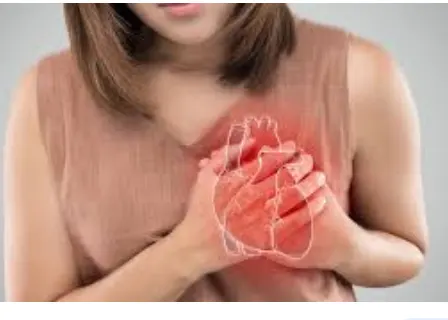Angina, also known as angina pectoris, is chest pain or discomfort that occurs when part of your heart muscle does not get enough oxygen-rich blood. It is a common symptom of coronary heart disease, which develops when the arteries of the heart become partially or totally blocked.
Angina pain can feel like pressure, squeezing, tightness, or burning in your chest. The discomfort can also spread to your shoulders, arms, neck, jaw, or back, just like a heart attack. Angina pain can even feel like an upset stomach. Symptoms can be different for women and men. Angina is very common, affecting approximately 11 million people in the United States. There are several types of angina, and the symptoms may vary depending on which type you have. Angina pain, also called an angina event, can happen when your heart is working hard, or it can happen when you are at rest.
To diagnose angina, your healthcare provider will ask you about your symptoms and may order blood tests, take an X-ray image, and do tests, such as an electrocardiogram (ECG) or an exercise stress test, to find out how well your heart is working. With some types of angina, you may need emergency medical treatment to prevent or treat a heart attack. To help you manage your angina, your provider may talk to you about heart-healthy lifestyle changes, medicines, medical procedures, and cardiac rehabilitation.
Another key difference is what makes the pain go away. Rest or medication (nitroglycerin) causes stable angina to go away within a few minutes. However, if you’re having a heart attack, rest or medication won’t ease your symptoms. Stable angina doesn’t require emergency care unless your pain suddenly gets worse or doesn’t go away with rest or medication. A heart attack is a life-threatening emergency that needs immediate medical attention. There’s nothing you can do on your own to make it better. That’s why it’s important to talk with a healthcare provider about your angina and learn what’s “normal” for you. Ask your provider what’s out of the ordinary for you and when you should call 911.
Reduced blood flow to your heart (myocardial ischemia) causes angina. Several problems with your coronary arteries can prevent your heart from receiving enough blood.










